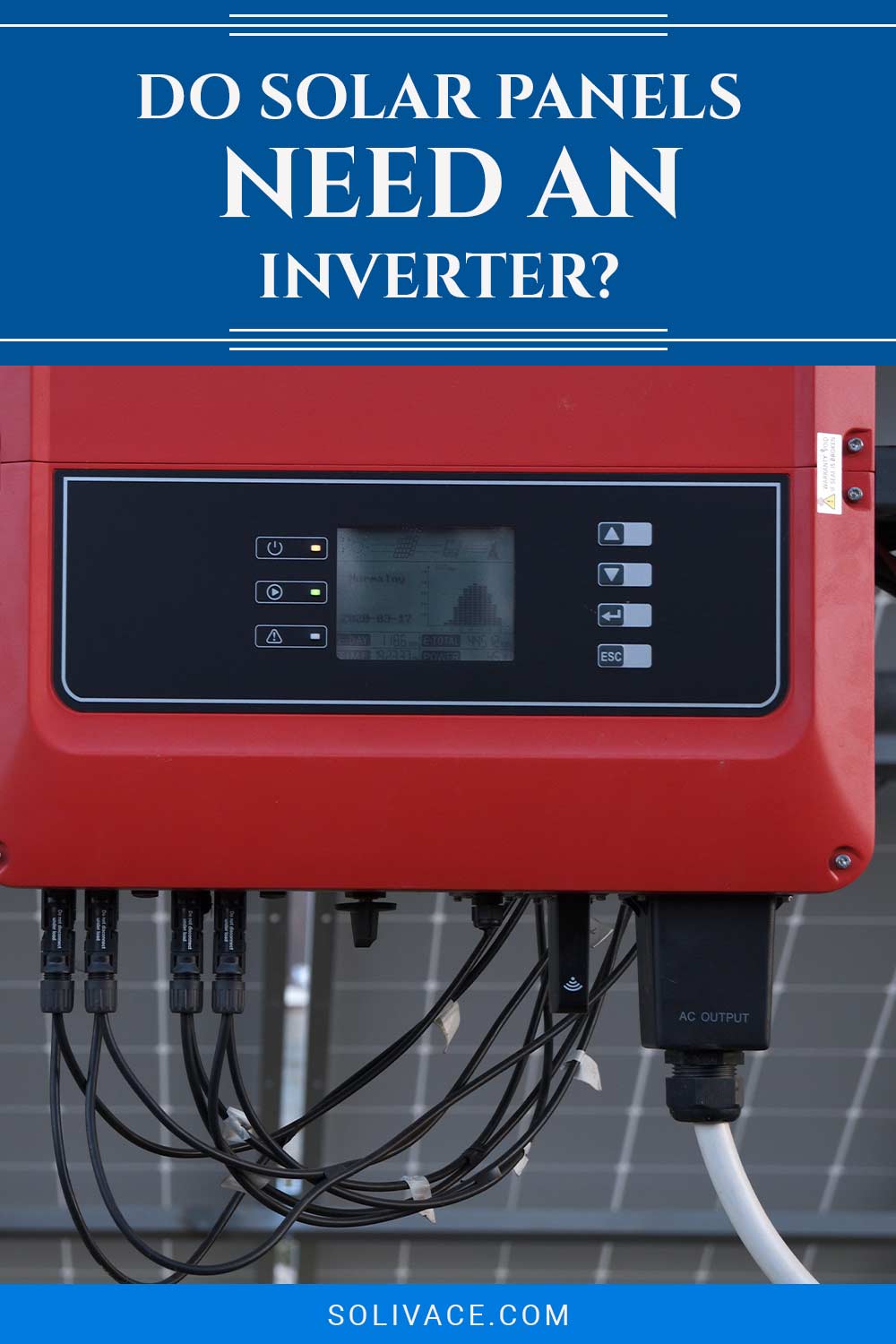Do Solar Panels Need An Inverter?
We may earn commissions for purchases made through links on our site. Learn more on our about us page.
The primary purpose of a controller and inverter is to manage the power flow that is pulsing through the solar panel system at any given time.
In short, solar panel systems will need an inverter to convert the DC current into the usable AC current required for commercial and residential use.
These devices are used for more than just renewable solar-powered sources, energy from the power grid, and any other means of creating electricity.
Invented in the early twentieth century, the five-hundred-kilowatt Westinghouse ‘rotary converter’ is the earliest known type of technology.

What is the Purpose of an Inverter?
The majority function of the inverter is to take power from the solar-powered system and deliver usable power to the home and our power grid at large.
After the solar cells collect the photonic energy from the sun, the power collected is sent through a controller to direct power to the home or storage batteries.
Next, for residential homes, an inverter will allow a homeowner to draw from the current from the controller or the batteries and convert the DC into AC.
Commercial solar farms will have a similar setup, but the inverter will send the AC current directly to the power grid to be used by neighboring facilities and homes to use.
How does an Inverter Work?
The basic process of how an inverter converts power is simple, and first, it takes the DC current from the Solar panel controller or from the stored energy in the batteries.
Then, it redirects it upon itself a few times, converting it to an AC current, and then relays it to places needing electricity.
The added capability of these units would be able to switch directly from the Solar collection area or from the storage batteries, but also help direct flow to the home or power grid. Suitable for an invention from the early nineteen hundreds.
Can Solar Panels Work without Inverters?
To be blunt, yes, but the energy stored in the batteries will need to be converted to an AC current before any homes or power grids can utilize the collected solar power. These simplified systems will charge simple devices or gadgets, mainly batteries.
As mentioned earlier in the article, there will be an inverter in every home and building that uses electricity to convert the electric current into a form that can be safely used.
In addition, simplified solar panel systems can be deployed outdoors to charge batteries for gadgets such as a Camera, GPS, or Lamp.
What are the Components of an Inverter?
Inverters will be made of sensitive, specialized equipment designed to take direct current and give it an oscillation pattern to follow until AC current is achieved.
This requires an intricate network of hardware inside the Inverter, not to mention the larger pieces of hardware needed to properly set up one of these systems.
To give you a solid idea of the internal hardware needs for an inverter, a list has been provided, and these components include but are not limited to:
- A set of capacitors
- Specialized diodes
- Electric resistors,
- Current switches
- Power transformers
Are Inverters Universal for all Solar Panels?
There are varying opinions on this topic, but the majority will agree that a solar panel array can hook up with just about any inverter if the power capacity ratings are compatible.
Of course, this will all depend on the wattage available in both systems, meaning that the inverter can handle the power collection streams from the solar panels.
Thus, your answer will depend on the equipment you have available, the power collection available at your location, and the home’s inverter capabilities and technological components.
Final Thoughts on Do Solar Panels need an Inverter
The takeaway from all of this is to make sure you understand the equipment you are using and how to calculate the energy needs vs. what can be stored and shared with the power grid.
There will be many different approaches to having solar panels; some will save energy and minimize electricity usage to earn passive income from the power sent to the grid.
Others will use the system to supplement the power usage levels already in progress throughout the home, to which the solar panel’s power is a means to save money for the homeowner.



Leave a Reply
You must be logged in to post a comment.